How Many Watts Does a Freezer Use? Do They Consume Lots of Power?
-
Pete Ortiz
- Last updated:
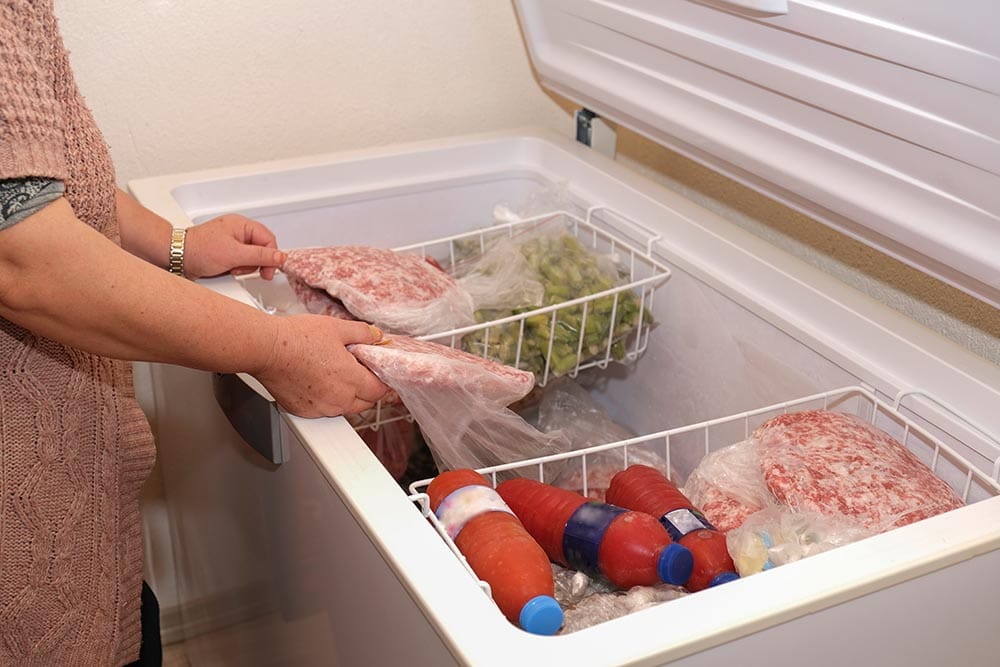
It’s hard to imagine our lives without a freezer. We use it to store meat, fish, fruits, and vegetables, to name a few. The freezer runs 24/7, extending the expiration date of our food. It does require power to work, of course. So, how many watts does a freezer need? The reference wattage ranges from 80 to 900 watts, with most models using 25–45 watts per day.
The factual consumption depends on the size, settings, and cooling stage. That’s right: the numbers on the back of the freezer don’t necessarily represent the real power requirements. So, join us, and let’s see how many watts different freezers consume, compare that to common home appliances, and pick the right model for you!
Chest vs Upright Freezer: What’s the Difference?
Before we talk about wattage, let’s take a quick look at the various types of freezers available on the market:
- Upright freezer. As the name suggests, upright freezers stand tall and have multiple shelves. These are a great pick if you’ve got limited square footage. They provide quick and easy access to food via a front-opening door. Plus, upright models are easier to clean and can auto-defrost. However, the price is a bit steep, yet the lifespan is short (10–15 years). Upright freezers consume more power, too.
- Chest freezer. Affordable, energy-efficient, and capable of keeping the food fresh for longer, chest freezers are a real crowd-pleaser. They do require more floor space, though, since they’re much wider than upright freezers. On the bright side, you can store up to 20% more products there.
- Deep freezer. This term is used to describe a freezer (upright or chest, but more often, chest models) that has more depth and can store more food. This isn’t a scientific term, of course, and is often used by different brands to market their appliances better.
- Compact freezer. Any freezer with a 1–7.2 ft-sq. capacity is considered a compact freezer. This is according to Energy Star standards. To put things into perspective, most chest freezers have a capacity of 9–22 ft-sq., while upright units range from 7.5 to 21.5 ft-sq.
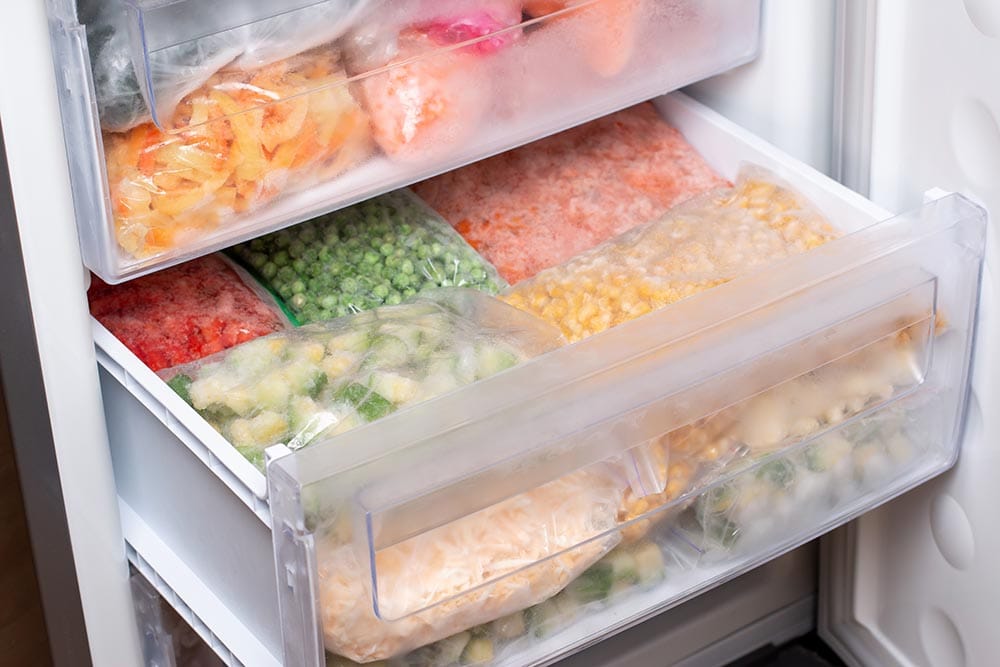
So, What’s the Average Wattage for a Freezer?
The most important thing to know about freezers is that the different cooling stages have a huge impact on power consumption. This is true for refrigerators as well. If we take a dozen freezers and calculate average usage, we’ll see that it can be as low as 80 watts or as high as 900 watts. The older the model, the higher its usage will be.
Reference wattage for newer units is much lower: 80–310 watts. And when the freezer is idle, it needs very little energy to run. In contrast, when it’s in the active cooling stage, usage is quite high. Thus, you should expect a new, properly-configured freezer to consume as little as 25–45 watts per day. The lowest consumption is 15 watts, while the highest usage reaches 74 watts.
Wattage Consumption by Freezer Type
As mentioned, upright freezers are the “hungriest” ones and may use up to 74 watts in the active cooling stage. As for chest freezers, they are significantly more energy-efficient and consume as little as 23 watts for most of the day, keeping the monthly utility bill low. But what about deep and compact models, though? Do they need more or less power to run?
Here’s a quick look at the lowest, highest, average, and most common usage for all four types of freezers. We divided the list into four categories to make it easier for you to navigate through the chart and decide which freezer type you like more. These are the average numbers. Your freezer will, most likely, be slightly more or less efficient:

| Freezer Type | Lowest Consumption | Highest Consumption |
Average Usage
|
Most Common Usage |
| Upright Freezer | 28 Watts | 74 Watts | 51 Watts | 45 Watts |
| Chest Freezer | 23 Watts | 39.5 Watts | 28 Watts | 23 Watts |
| Deep Freezer | 19.5 Watts | 39.5 Watts | 25 Watts | 22 Watts |
| Compact Freezer | 15.5 Watts | 45.5 Watts | 26.5 Watts | 27.5 Watts |
Electricity Consumption by Freezer Type
On average, a freezer consumes 350–400 kWh of electricity annually or 31 kWh per month. The lowest electricity usage for a freezer is 140 kWh. As for the highest usage, it can reach 650 kWh. And here’s how much electricity you should expect different types of freezers to consume. Just like with wattage, compact freezers are the most efficient option on the market, while upright freezers charge more to keep your food from spoiling:
| Freezer Type | Low Electricity Usage | High Electricity Usage |
Average Usage Consumption
|
Most Common Consumption |
| Upright Freezer | 247 kWh | 650 kWh | 445 kWh | 400 kWh |
| Chest Freezer | 200 kWh | 350 kWh | 250 kWh | 200 kWh |
| Deep Freezer | 170 kWh | 350 kWh | 235 kWh | 200 kWh |
| Compact Freezer | 140 kWh | 400 kWh | 235 kWh | 240 kWh |
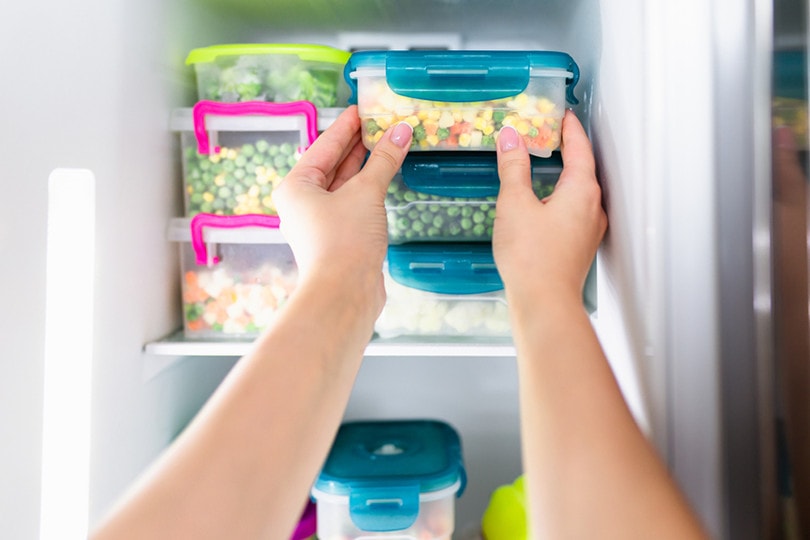
Freezer Wattage Requirements vs Common Appliances
We just went over exactly how many watts different types of freezers use, including upright and chest freezers. Now it’s time to see how they compare to other essential kitchen appliances. No modern-day home in the US makes do without a laundry machine, air conditioning system, or microwave. So, here’s how many watts they use and how much that costs annually:
| Appliance | Wattage Usage | Electricity Cost |
| Average-Sized Freezer: | 80–900 Watts | $200 per year (24/7) |
| Electric Water Heater: | 3.5K Watts | $330 per year (2 hours a day) |
| Air Conditioner: | 500–4K Watts | $320 per year (4–5 hours a day) |
| Space Heater: | 1–4K Watts | $260 per year (8 hours a day) |
| Washing Machine: | 400–1.4K Watts | $20 per year (3 times a week) |
| Microwave Oven: | 600–1K Watts | $10 per year (15 minutes a day) |
Do Freezers Use Lots of Electricity?
As we just learned, freezers are NOT the most power-hungry appliances out there. While they do, indeed, use decent amounts of electricity, compared to air conditioners or, let’s say, water heaters, they are rather efficient. Freezers need a lot more power than TVs or ceiling fans yet only consume 3–5% of the total electricity consumption of an average house in the States.
Technically, freezers are among the most efficient home appliances. They work 24/7 and still cost less to run than a heater that you only use for a couple of hours a day. And one more thing: if you want to know exactly how much you’ll have to pay for a freezer per day, month, or year, use an electricity usage calculator. Don’t worry: these are very intuitive and only take seconds to process a request.
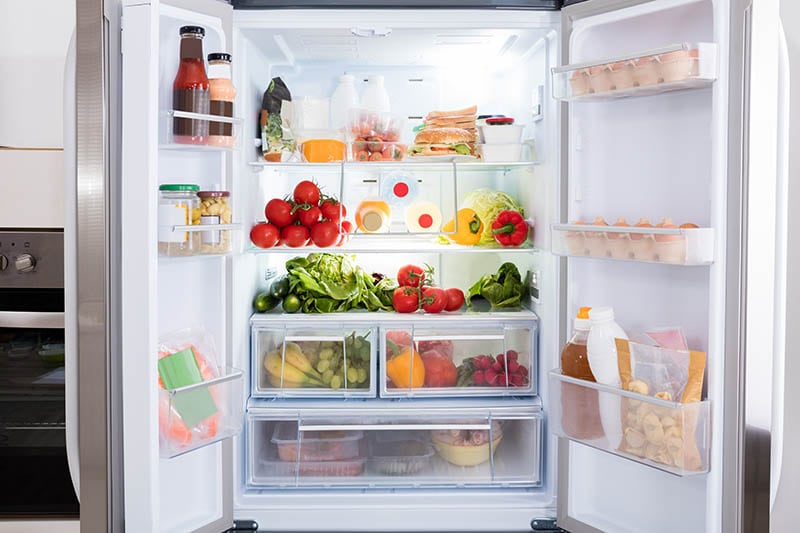
How Long Do Freezers Last?
If you take proper care of the freezer, it will serve for up to 20 years. As for the average lifespan, it’s 12–16 years. This is true for both chest and upright models. That makes the freezer one of the longest-lasting devices in a modern-day home. And, just like any other appliance, it will benefit from regular maintenance. So, make a habit of defrosting the freezer when the ice gets thick (like 1/4 inches).
Usually, that happens once in 6–12 months. While you’re at it, give the freezer a good clean. Grab a piece of cloth and clean it thoroughly using water and soap. If you don’t do this, all that ice will take its toll on the freezer and boost your energy bill. Next, make a habit of wiping spills. Lastly, check on the thermometer, coils, and wiring once a year.
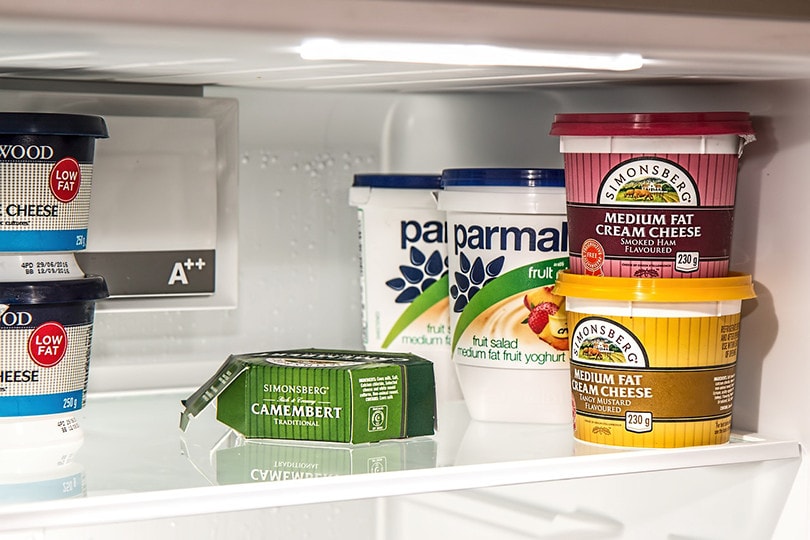
Tips for Using the Freezer Properly
With the average life cycle of a freezer out of the way, here are some tried-and-true tips on how to use it the right way:
- Stick to the recommended settings. The default temperature for a freezer is 0°F (-18°C). Depending on the environment, you might want to change the settings a bit (like maybe when it’s too hot or humid outside). Still, cranking the temperature to 11 won’t do much good. Instead, it will make your utility bill go up.
- Keep the freezer stocked. When the freezer is 70–80% full, it takes less effort for it to retain the cold air. But do make sure there is some space in there for the air to circulate. Otherwise, the freezer will have to work harder and consume more power from the outlet.
- Don’t freeze the food for too long. Zero temps do a great job of halting bacteria growth, thus preventing food from going bad. That doesn’t mean you should keep it in there forever, though, as that will negatively affect the taste. This is a very common mistake!
- Defrost the food in the fridge. That’s right: instead of grabbing it from the freezer and putting it on the counter, give the meat, vegetables, or whatever food you’re working with some time to defrost in the refrigerator. A microwave will also work.
Conclusion
Freezers do need electricity to run, but they’re not the most power-hungry appliances in an American household. Depending on the size and the type, the power consumption can be rather low. In any case, it’s very important to know exactly how many watts your freezer needs to operate. This way, it will be much easier to “predict” the electricity bill for the month.
Now, before you invest in a new freezer, make sure it’s not too big yet spacious enough for all your food. And remember: new models require less power/watts to maintain below-freezing temperatures. They do cost more but compensate for that in the long run. Take care of your freezer and it will keep your products from spoiling!
- Appliance – How Long Do Freezers Last?
- NACHI’s Estimated Life Expectancy Chart for Homes
- Whirlpool – How to defrost a freezer quickly
- Gov – Are You Storing Food Safely?
- LibreTexts – 6.14.3: Low Temperatures
- EcoCostSavings – Freezer Wattage Results
- SpencersTV – Chest vs Upright Freezers [Pros and Cons]
- FIXr – Chest vs Upright Freezer Comparison
- EnergyStar – Compact Freezers
- EnergySage – How many watts does a microwave use?
- Gov – Average monthly electricity bill for U.S
- How Much Power Is Your Electric Water Heater Using
- How many watts does a washing machine use?
- How many watts does a space heater use?
- How many watts does an air conditioner use?
- EnergyUseCalculator – Electricity usage of a Freezer
Featured Image Credit: AhmetCelik, Shutterstock
Contents


